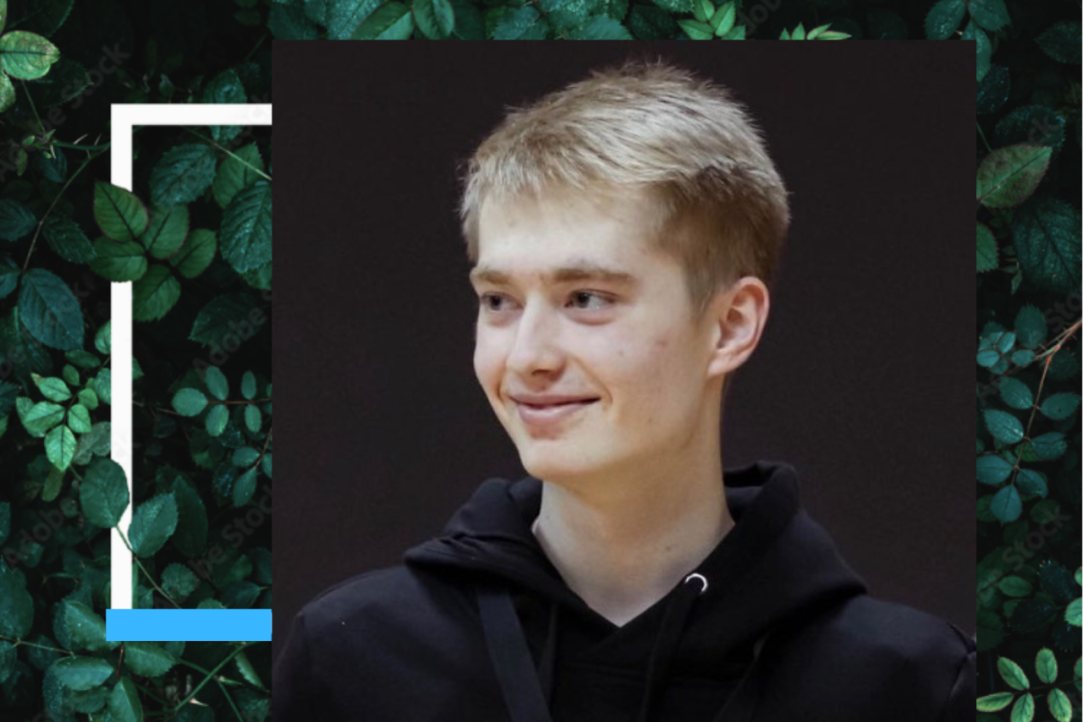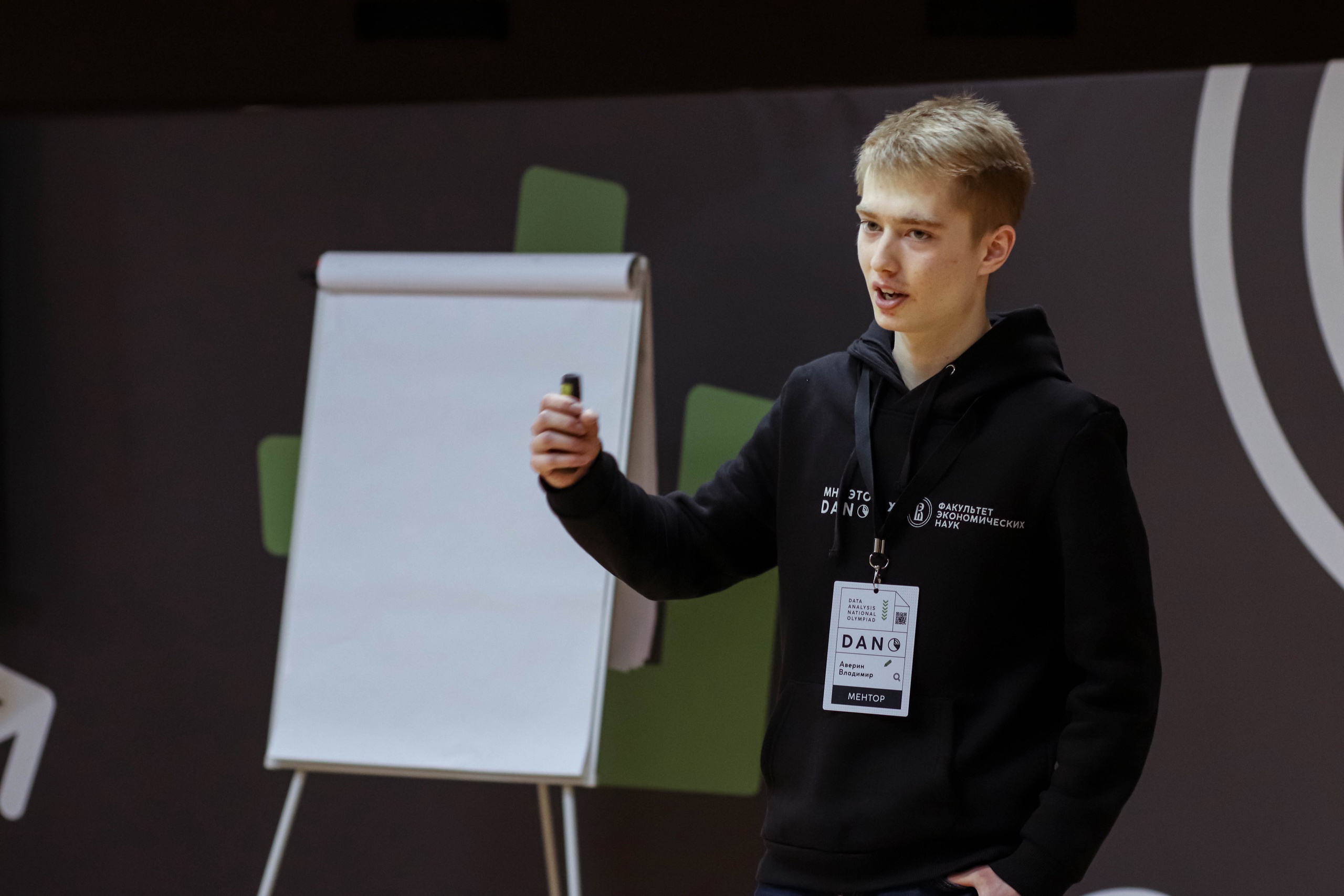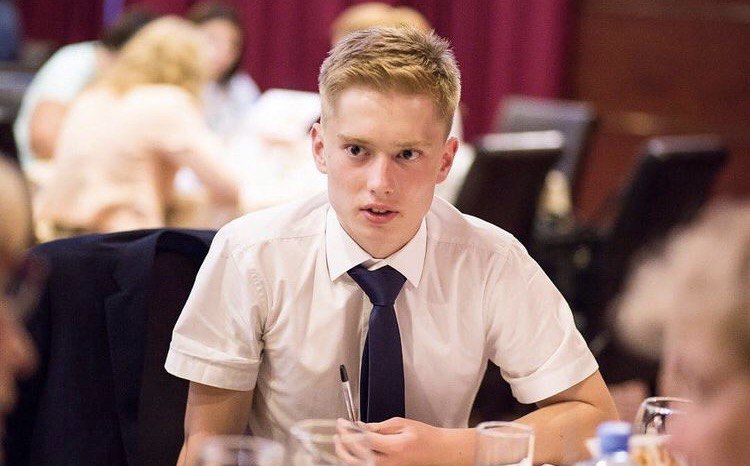“Academic Success is Largely a Matter of Making Self-Discipline a Habit in Year One”

Vladimir Averin is in his fourth year of studying at HSE ICEF and has become an absolute winner in the Econometrics Universiade 2023, an annual competition organized by Moscow State University. This has been Vladimir’s second win, last year he showed second best result. In 2023 Vladimir is starting his PhD study at Yale University (USA). In this interview, he tells about the benefits of studying at HSE, why Econometrics requires creativity, and how to win a scholarship from Yale University Department of Statistics and Data Science.
About becoming a brilliant student
Studying at ICEF is not easy, but if you don’t let yourself be lazy and apply yourself in learning the core subjects, then you are just bound to succeed. That’s the first thing I realized when I became an ICEF student. My first two years were the most difficult – I made a lot of mistakes before I finally figured out the right learning strategy. What also helped me to succeed was the very design of the curriculum: at ICEF each later course builds on the knowledge of the earlier courses, so this is why it is important to study hard in your first year. In my third year, I even managed to combine study with work. I was even able to compete, and win some, academic competitions, and join career events.
I learned about the Econometrics Universiade when I was a third-year student and decided to compete. I showed second best result, an achievement that has largely increased my confidence. I developed a passion for data science – Econometrics and data science are two related fields – and I thought I could join more contests. One was the International Data Analysis Olympiad, organized by HSE in cooperation with Yandex. It involved the student teams from many universities. My team managed to get to the final – another challenging but rewarding experience for me.

It soon became my ambition to achieve high academic level. As a first-year student, I started ICEF Academia, a programme that offers an opportunity for the advanced study of particular courses. My excellent performance, especially in mathematical analysis where I scored highest, earned me a place in the Summer School of the London School of Economics. In my second year at ICEF Academia, I decided to go further and started a highly challenging course in statistics. It embraced topics as diverse as programming, matrix statistics, stochastic analysis and turned out a curious experience. I’m glad I did those extra courses.
I think that academic success is largely a matter of making self-discipline a habit as early as year one. But, of course, in my case it’s the passion for learning that has kept me going in the first place.
About gaining research experience
Actually, research wasn’t my number one goal for the most part of my studying here. I was looking more to get the skills required in the workplace. At the same time, I knew that candidates with good researcher skills were seen by the employers as capable of brining more to the job, they also stand a better chance of getting tasked with more exciting roles. My current job involves a lot of research – I collect and analyze the data, I build hypotheses, trying to understand how one factor affects another. Even though I gained my research skills mostly in the workplace, not in a laboratory doing research projects, I think I have sufficient understanding of how applied academic research works.
Vitalijs Jascisens served as an associate professor at ICEF between 2018 and 2022) and Ekaterina Kazakova (Note: Ekaterina Kazakova is a member of the class of 2015 and pursues career in academia) and as such has been a part of interesting projects that involved data collection and analysis. I learned how to set research tasks and solve them using data, I gained experience with scientific methodologies and concepts. It was in my fourth year that I began to focus more on gaining academic experience. Most academic fields offer room for nearly limitless research. The deeper you go into detail exploring a phenomenon, the better you are prepared for quality research and the more competitive you become as a job candidate. This has led me to start graduate study.
ICEF offers a wide range of elective courses and activities designed for students to gain research experience. There’s a special series of teaching seminars that present PhD programmes and research that is being conducted in various fields of economics and finance. We benefitted greatly from those seminars also because they presented the papers and theses from previous years as examples of the student research.
At HSE, professors are easy to get support and feedback from. Show initiative and be sure to formulate your research question clearly
The area I would like to explore scientifically in the future embraces data analysis, statistics, and data science in general, and I discovered it as early as year two. I have always enjoyed working with data, doing statistical analysis to reach a conclusion, calculation or model. At ICEF, we start to learn Econometrics in our third year. I heard the news about the upcoming Universiade and decided to compete. I was curious to test my knowledge of Econometrics, data analysis and statistics, and to compete with other students. There are many different hackathons that test your knowledge of data science and programming skills, but very few that require in-depth knowledge of the theory. The Econometrics Universiade is special in this sense. Even though data science and econometrics are two related fields, but the former uses a different approach, which requires, in addition to forecasting skills, the ability to interpret computational results
About winning the Econometrics Universiade
At ICEF, we start to learn Econometrics in our third year. I heard the news about the upcoming Universiade and decided to compete. I was curious to test my knowledge of Econometrics, data analysis and statistics, and to compete with other students. There are many different hackathons that test your knowledge of data science and programming skills, but very few that require in-depth knowledge of the theory. The Econometrics Universiade is special in this sense. Even though data science and econometrics are two related fields, but the former uses a different approach, which requires, in addition to forecasting skills, the ability to interpret computational results.
Econometrics competitions offer interesting problems. They don’t require you to build sophisticated models, for solutions mostly build on interpretation and theoretical reasoning. Like all other courses, Econometrics is taught at ICEF in English, so it therefore took time interpreting the problem and formulating the solution in Russian. I did not do any special preparation for the Universiade. I relied solely on what I’ve learned from ICEF’s strong course in Econometrics. Those who are looking to increase their econometrics skills can take courses on time series and panel data in their fourth year of study. But what also helped me win was my data analysis skills, knowledge of statistics, and the Machine Learning courses I did earlier.
This has been my second win in the Econometrics Universiade. I was very curious to learn what problems organizers had prepared for us this year, and it’s been an interesting experience discussing the solutions with the other contestants afterwards. I am glad I was able to win top prize – more so because there were many strong contestants.
About data science
My interest in data science and programming emerged later. I didn’t even know they offered nice career prospects before I became an ICEF student. Nor had I ever considered them as my future options.
It wasn’t until I actually started learning programming that I realized it wasn’t as difficult as I’d expected. Combined with the statistical theory, the use of multiple programming languages for data interpretation has turned out to be the most exciting thing I ever learned
ICEF teaches Python and SQL as electives. I was pleasantly surprised to discover these two languages weren’t difficult at all to use, provided that you have enough practice. And I was greatly inspired by the career stories of the ICEF graduates who chose to become data scientists. I see some really good career prospects here and I think I should become one too.
In addition to econometrics and machine learning, I took electives in data science and neural networks. The knowledge of these fields will help me decide on my future research track. I might choose to do applied research or go deeper into theory, statistical analysis and data interpretation, or go into an interdisciplinary area depending on my research tasks. I currently serve as a junior quantitative analyst at Raiffeisenbank, so data science is what I am using every day. I would like to enhance my experience as a researcher and am planning to start a PhD at Yale University as a way towards a job where I’d be dealing with non-trivial research tasks on a daily basis.
About admission to Yale
To be honest, PhD had been my “just in case”, a B plan. It wasn’t until I got the invitation from Yale University and discussed my prospects in the USA with teachers and friends that I made it my A plan. I first decided to do a master’s in data science or statistics, but someone told me I could skip master’s and go straight for PhD if I had a strong portfolio. I thought my research experience wasn’t strong enough for that, but I was wrong.

I gave my plan a serious thought, I studied the career tracks pursued by PhD holders, and I realized I didn’t have to stay in academia after earning my PhD. Many PhD holders end up in the industry. Applying for PhD is much more competitive than for master’s. I got admitted to Yale and received a scholarship from its Department of Statistics and Data Science. Ahead are the five years of more in-depth studying of data science and doing new research. I’ll have enough time to decide on that I want to do professionally and land a job exciting enough to keep me working on research tasks.
I have already met some of the teachers and presented my academic interests to them. They asked me why I wanted to do a PhD and gave details of my curriculum, how the learning process is arranged, and what extra courses I’d be able to take. Looked like I had the professors for my myself on that online open day. Yale offers many student events. I am looking forward to experience its vibrant environment, see the campus, satisfy my scientific curiosity and discover lots of new things.